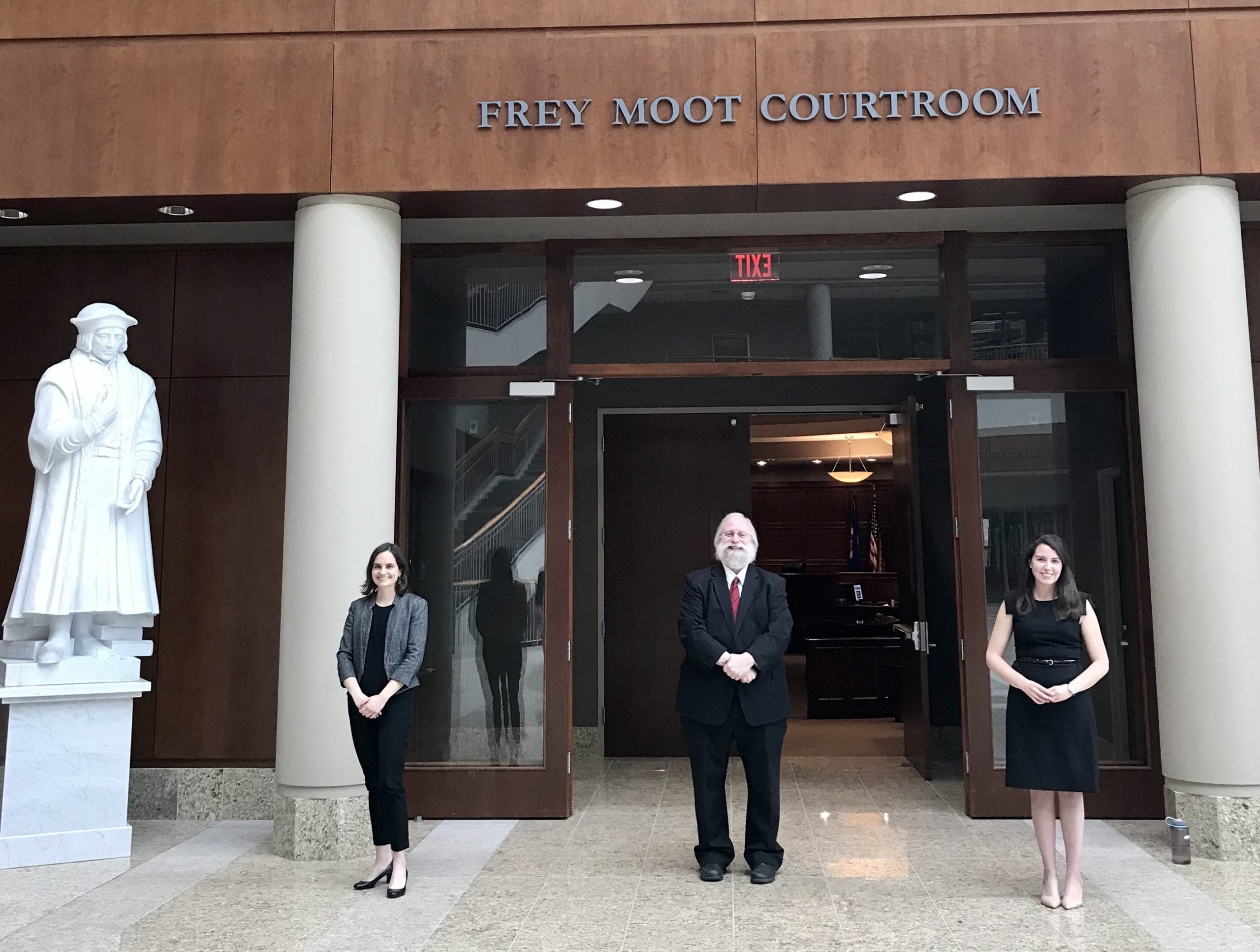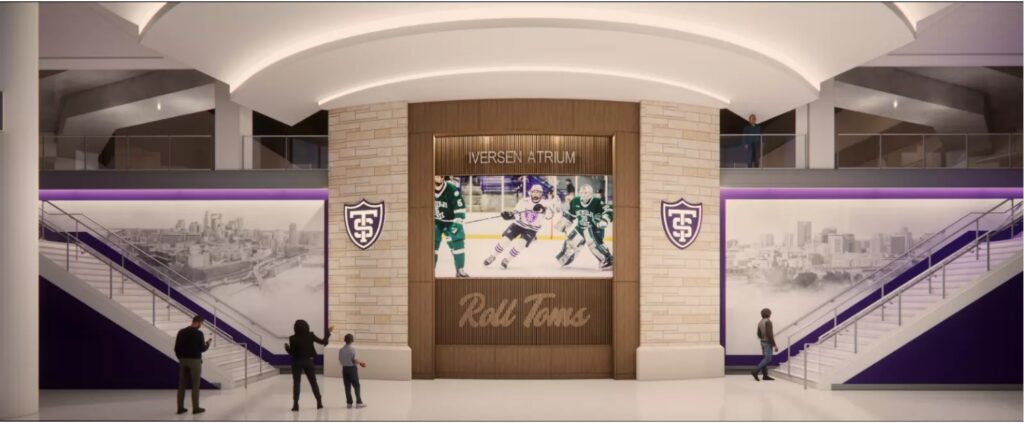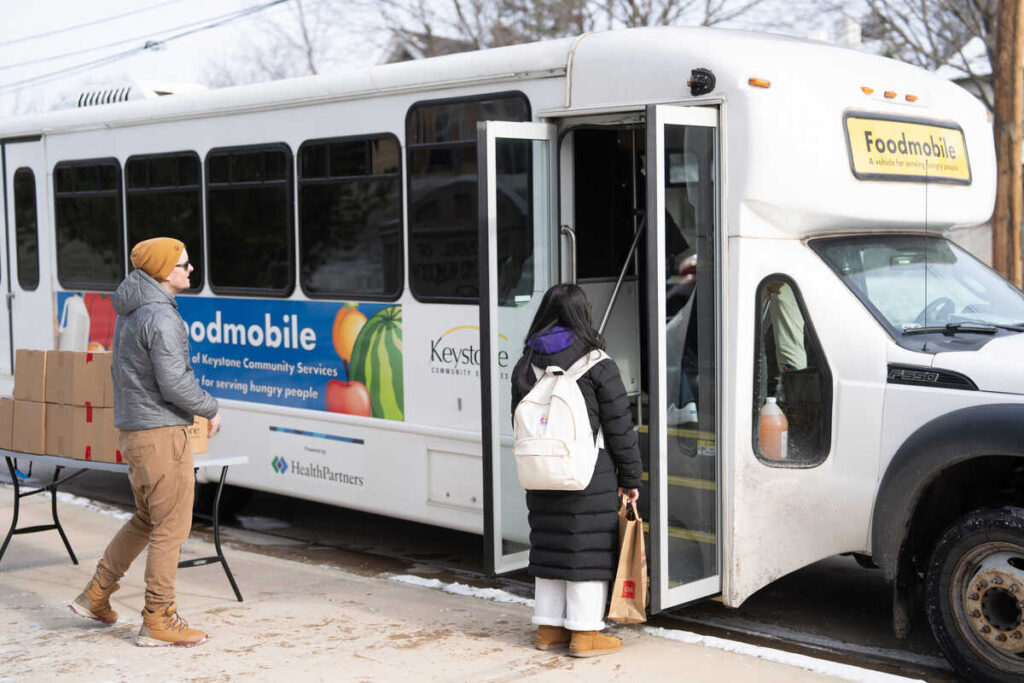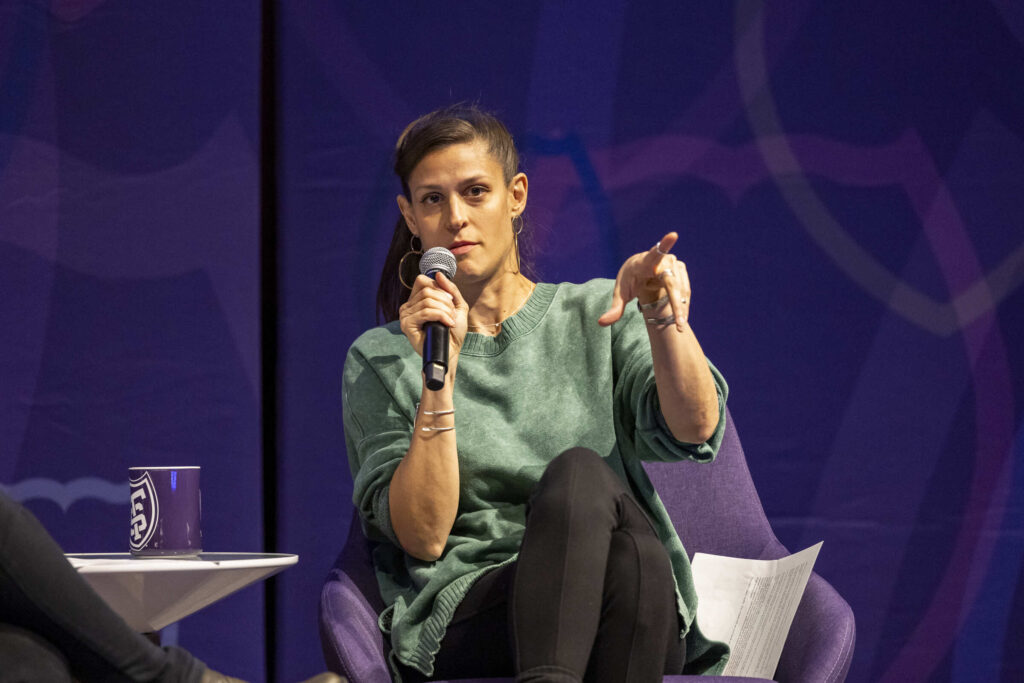Third-year students in the University of St. Thomas School of Law Appellate Clinic argued a prisoner civil rights case involving attorney-client confidentiality before the U.S. Court of Appeals for the Ninth Circuit on May 22.
Because of the pandemic, the argument was presented by video – a new experiment in the federal appellate courts – rather than in person in San Francisco as originally scheduled. The students appeared by video from the University of St. Thomas law school courtroom.
The case, John Witherow v. Howard Skolnick, was argued by graduating students Anne St. Amant and Zuzana Menzlová, who participated in the law school’s Appellate Clinic led by Professor Gregory Sisk, Laghi Distinguished Chair in Law. The appellate team began working on the case in summer 2019, writing opening and reply briefs and then preparing for oral argument. The video of the oral argument is available here.
John Witherow, then a prisoner in Nevada, discovered that correctional officers were eavesdropping on his telephone calls to lawyers who represented him in prison condition litigation. In the prison unit where Witherow was held, officials had spliced a speaker box into the prison telephone system, which then allowed them to secretly listen to telephone calls. Although prison officials insist they engaged in monitoring only to verify a proper legal call, the correctional officer admitted she listened to the conversation for legal words that she had heard on television. In their appellate brief, defendant prison officials acknowledged they were evaluating the content of the conversations for what they regarded as pertinent legal issues. Moreover, evidence in the record revealed repeated and extended secret listening by correctional officers to attorney-client communications.
After the District Court dismissed Witherow’s claim that this eavesdropping on privileged attorney-client conversations violated his Fourth Amendment rights, the U.S. Court of Appeals for the Ninth Circuit reversed on appeal. The U.S. Court of Appeals for the Ninth Circuit held that a prisoner does have a right to confidential calls to attorneys but remanded the case to the trial court to consider whether there were available alternatives to monitoring to protect prison security. The District Court entered judgment on the first remand without allowing the parties to be heard, which prompted a second reversal by the U.S. Court of Appeals for the Ninth Circuit. Notwithstanding that Witherow presented evidence on the readily available telephone technology that can automatically detect and terminate abusive calls that are redirected from a lawyer, the District Court again ruled against Witherow on the second remand. The case is now on a third appeal.
At the oral argument, the three judges asked numerous questions of the St. Thomas Law students about the facts of the case, including whether a single correctional officer remanded as defendant or if the case also involved higher level prison officials as well, the evidence about the extent of the correctional officer’s listening to legal calls, and the alternative telephone technology. The judges also questioned whether the defendant prison officials should be denied qualified immunity because the law was clearly established at the time of the episode. The students contended that a prior U.S. Court of Appeals for the Ninth Circuit decision had drawn the Fourth Amendment line against monitoring of prisoner calls properly placed to an attorney, and that a district court decision only a year earlier had directly warned Nevada prison officials not to intercept privileged attorney-client communications.
The Appellate Clinic is a yearlong course that charges students to study written and oral advocacy, appellate courts, appellate jurisdiction and the rules of appellate procedure. Clinical students represent a client pro bono under faculty supervision, briefing and arguing appellate cases on their behalf. The Appellate Clinic has won its last six prisoner rights cases before the U.S. Court of Appeals.







